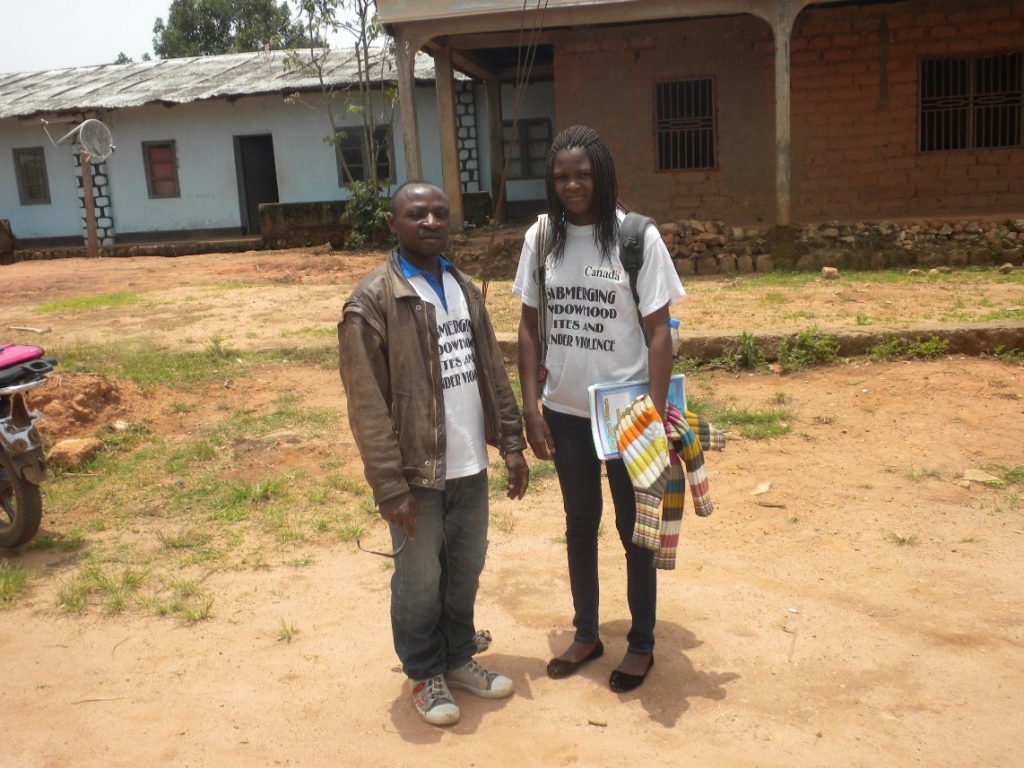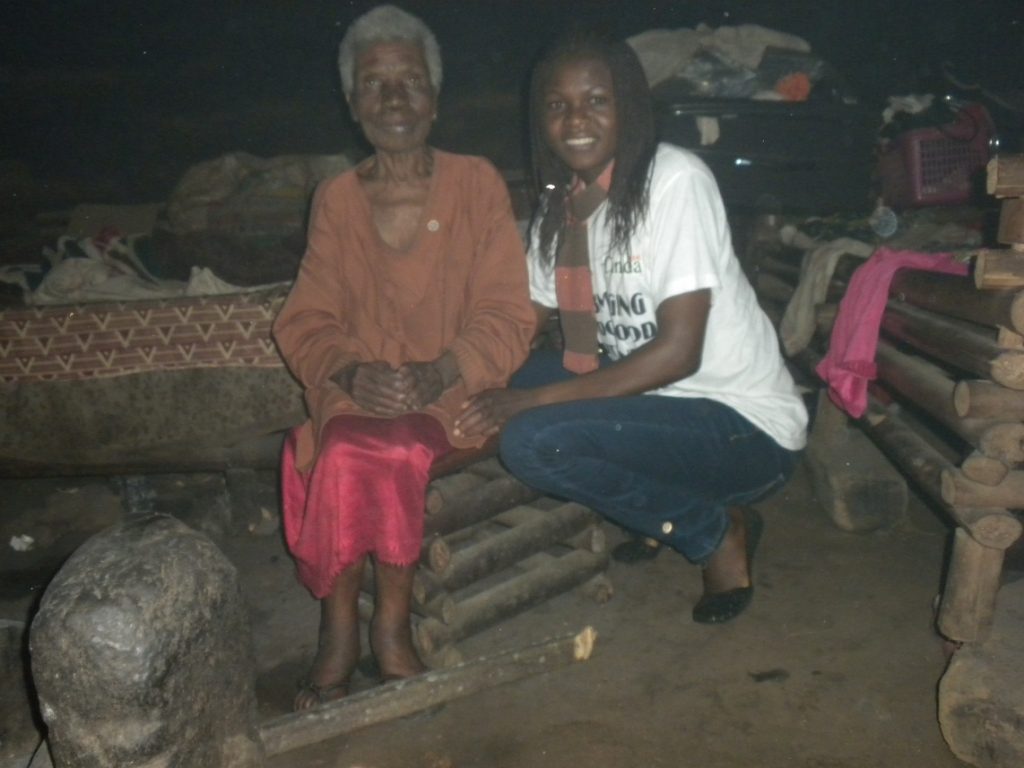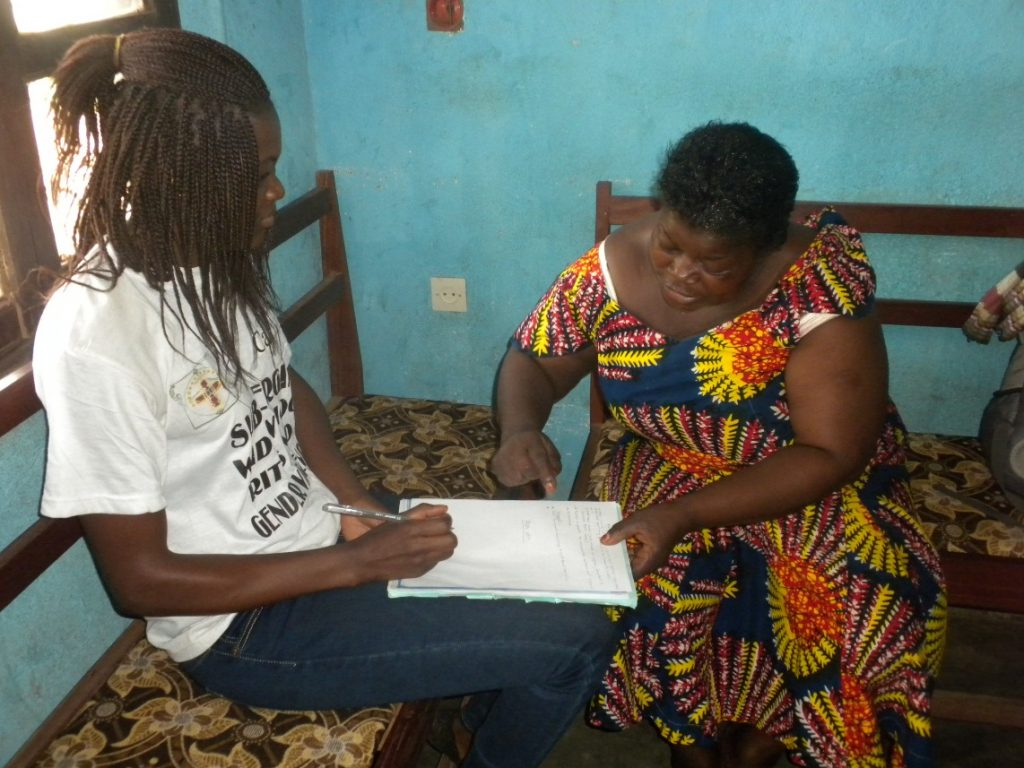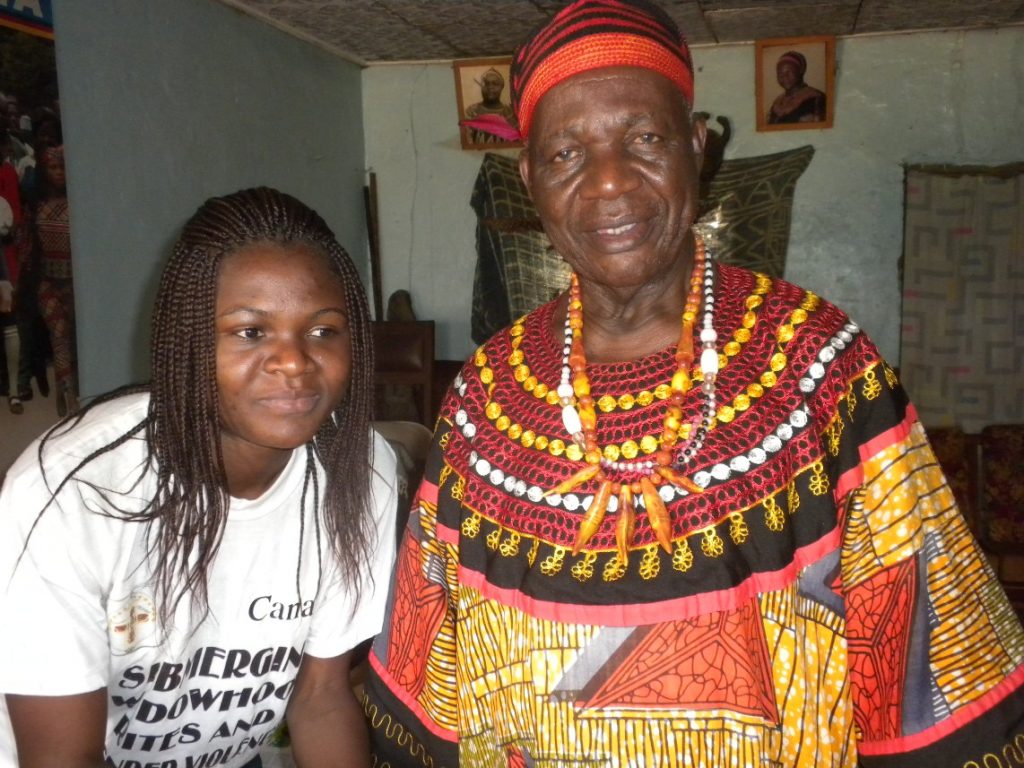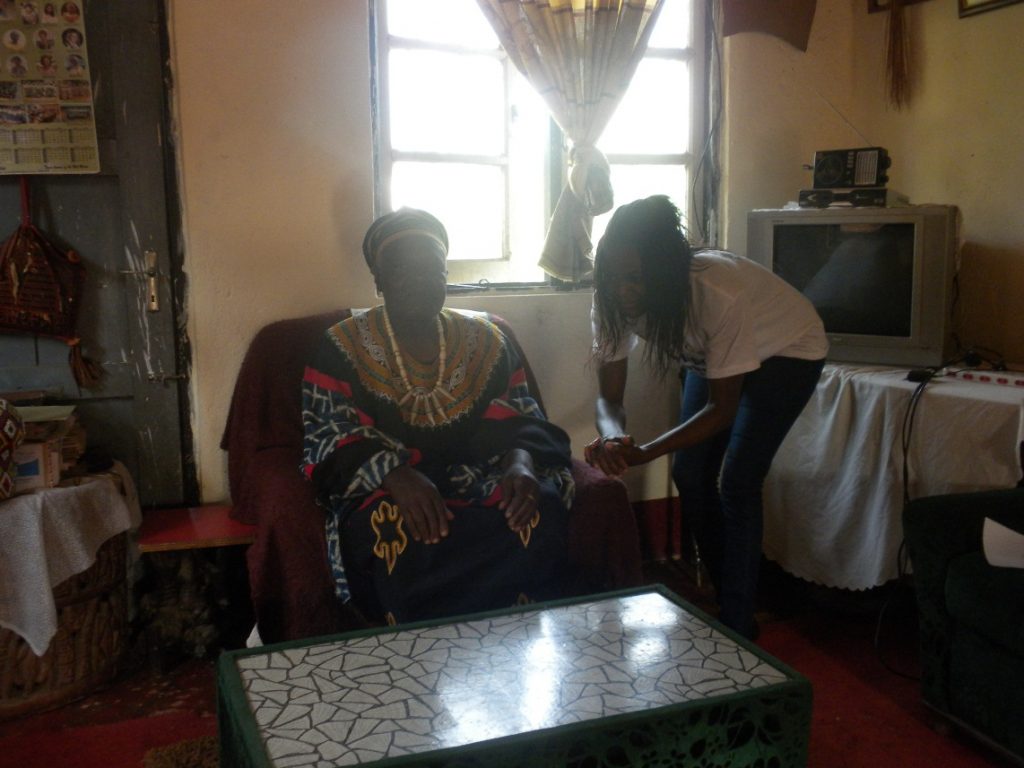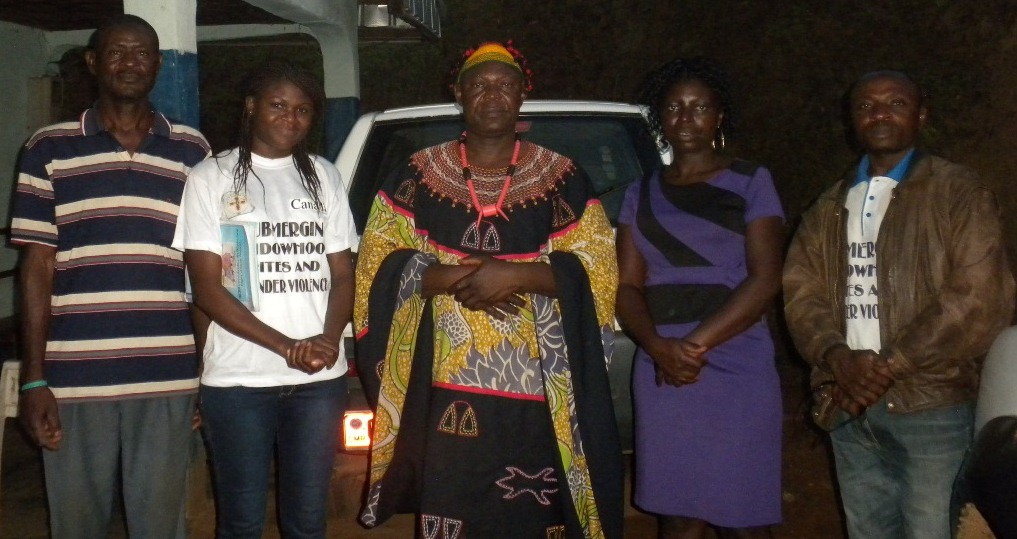I am text block. Click edit button to change this text. Lorem ipsum dolor sit amet, consectetur adipiscing elit. Ut elit tellus, luctus nec ullamcorper mattis, pulvinar dapibus leo.
[/vc_column_text][/vc_column][/vc_row]
Post-Programs/Activity Outcomes Evaluation Report Briefs of the Widowhood Rites to Rights Initiative in Wum, Weh and Esu
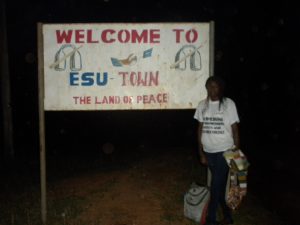 In order to ascertain that all initiated activities to curb-down barbaric widowhood rites practices and traditions through the widowhood rites to rights initiative within the localities of Esu, Weh and Wum in Menchum division of the North West Region of Cameroon had actually brought about measurable significant changes, an independent evaluation team was dispatched to the field.
In order to ascertain that all initiated activities to curb-down barbaric widowhood rites practices and traditions through the widowhood rites to rights initiative within the localities of Esu, Weh and Wum in Menchum division of the North West Region of Cameroon had actually brought about measurable significant changes, an independent evaluation team was dispatched to the field.
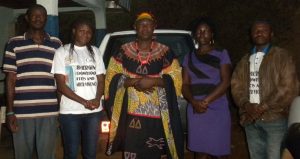
Led by Nungo Linda Seme, the evaluation team was charged with the duty to meet and interview the Fons (local kings of all 3 concerned localities); the presidents and members of the three widowhood associations or ombudspersons groups for Esu, Weh and Wum; the lord Mayor of Wum Central; the Menchum divisional delegate of women empowerment and the family; the Senior Divisional Officer of Menchum division; and some other interested widow participants of the implemented programs.
In the course of the evaluation process, some immediate outcomes were noted:
1. With Regards to the Meetings with the Fons of Esu, Weh and Wum, they acknowledged that:
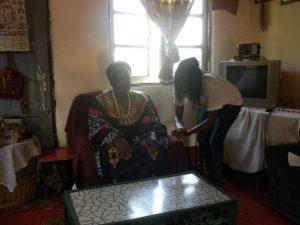
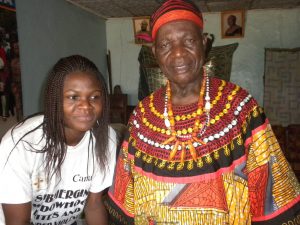
- Before MAHSRA’s intervention, their community members were ignorant of the fact that widows are equally entitled to the inalienable human rights within the same perspectives as other married women still living with their husbands and as such, they have been suffering from acts such as maltreatment, neglect, denial of property ownership, sexual abuses and exploitation under certain traditional rites and customary practices;
- After the formation of the widowhood associations and the series of workshops and advocacy rights-based sensitisation campaigns, the trend of widows’ maltreatments through their normal widowhood rites practices drastically reduced. An exemplary case is cited wherein the fons of Esu and Weh and the members of the widowhood associations of both localities had to intervene in order to obtained a peaceful resolution to a victimized widow being denied her rights to inherit or hold custody over her late husband’s property;
- The Fons of all three localities had taken it upon themselves to sensitize their community subjects by paying sensitization visits and building awareness on their will to assist the most unfortunate community widows as need arises;
2. With Regards to the Meetings with the Widowhood Associations of Esu, Weh and Wum it is acknowledged that:
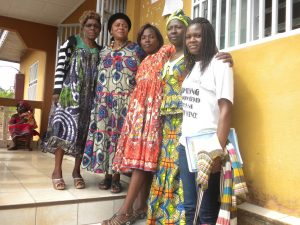
- They have had several meetings to discuss their target activities and have registered many other widows within their communities to join their associations. The widowhood association of Weh have organized a road parade and have also succeeded in transforming or influencing 7 traditionally married-only couples towards legalising their marital statuses.
Some other Identified Challenges were noted within the Concerned Localities of Esu, Weh and Wum.
1. At the Level of the Fons:
- They complain that since it is not possible for them to attend all funeral ceremonies of the victimized widows, their means to intervene and stop some recalcitrant family member culprits during such ceremonies are limited;
- Some widows still shy-away from reporting or exposing their predicaments to the fons for fear that they may lose the little abusive support measures they are obtaining from their perpetrators.
2. At the level of the widowhood associations
there was need to strengthen the capacities of the members towards rights based activism for the vulnerable community widows and as well to refocus their attention on the principal objectives of their existence.
3. At the Level of the Administration (Local Authorities, Police and Gendarmes):
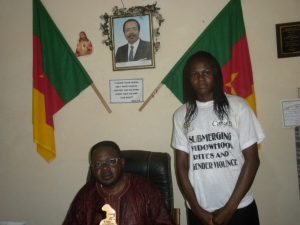
- They complain that due to the succession law, few cases are reported or brought on their tables;
- Lack of documents to backup claims in cases of securing landed property by the vulnerable widows makes it difficult and complicated to handle inheritance issues.
Suggestions from the Evaluation Work:
 The Fons, widows, local authorities, and the administration proposed that more enlightenment workshops should be organised at least twice a year and a training of trainers organised to enable concerned victims buy up the process to their independence and development;
The Fons, widows, local authorities, and the administration proposed that more enlightenment workshops should be organised at least twice a year and a training of trainers organised to enable concerned victims buy up the process to their independence and development;- There was need for MAHSRA to pay very frequent monitoring visits to the concerned localities in order to encourage the widowhood associations in their duties for the wellbeing of the community widows;
- There was need for MAHSRA to reinforce its relationship with the local administration, the councils and the traditional rulers in order to help sustain the project’s objectives and their realization indefinitely;
Other Identified Community Needs through the Evaluation Process:
 It was noticed that most of the vulnerable widows within the target communities look very sick and are in need medical attention;
It was noticed that most of the vulnerable widows within the target communities look very sick and are in need medical attention;- Evaluation team lead and poor community widow
- It was also noted that there is need for assured means or facilitated opportunities to assist the poor and victimized community women in sustaining their livelihoods;
- The community members also voiced out the need for scholarship opportunities for vulnerable orphaned children arrived at through barbaric widowhood disinheritance practices;
As a conclusive note, the evaluation team suggests that, by the end of the project, the community members would have recognized and respected the rights of widows, bought the idea and process for advocating and defending the rights of widows, and accepted to promote the welfare of the rural widows and their orphaned children through empowerment and sustainable livelihood independence mechanisms.
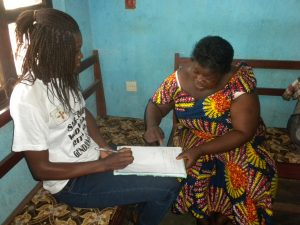 The Fons, widows, local authorities, and the administration proposed that more enlightenment workshops should be organised at least twice a year and a training of trainers organised to enable concerned victims buy up the process to their independence and development;
The Fons, widows, local authorities, and the administration proposed that more enlightenment workshops should be organised at least twice a year and a training of trainers organised to enable concerned victims buy up the process to their independence and development;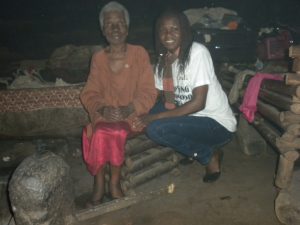 It was noticed that most of the vulnerable widows within the target communities look very sick and are in need medical attention;
It was noticed that most of the vulnerable widows within the target communities look very sick and are in need medical attention;